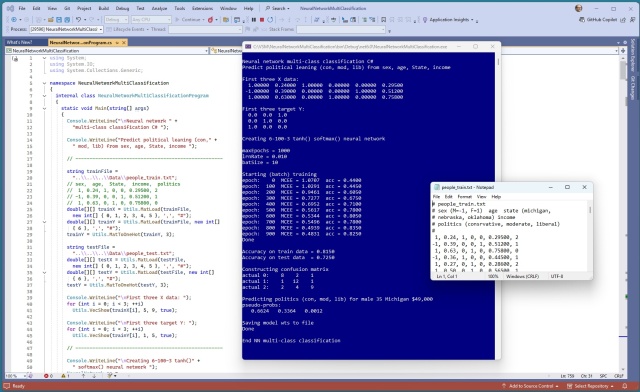Innovative ReVIEW Webapp accelerates video/audio review with human-AI collaboration, avoiding hallucinations. Built on Amazon Transcribe and Bedrock, ReVIEW provides accurate insights for professionals in various fields.
AI advancements have merged NLP and Computer Vision, leading to image captioning models like the one in "Show and Tell." This model combines CNN for image processing and RNN for text generation, using GoogLeNet and LSTM.
Over 100 experts, including Sir Stephen Fry, warn against irresponsible development of AI systems with feelings. They propose five principles to guide responsible research into AI consciousness amid rapid advances.
MIT Generative AI Impact Consortium, led by industry and MIT experts, aims to harness AI's transformative power for societal good, addressing challenges proactively. The consortium focuses on developing a solid foundation for generative AI to maximize benefits and minimize risks, aligning timelines with industry needs for real-time progress.
Speaker to present "Introduction to Neural Networks Using C#" at 2025 Visual Studio Live conference in Las Vegas. Demo includes multi-class classification system predicting political leaning from synthetic dataset.
Mark Thomson, the next director general of Cern, believes AI will transform particle physics, potentially revealing the fate of the universe. Machine learning advancements in physics could be as groundbreaking as Google DeepMind's Nobel prize-winning protein structure prediction.
UK introduces groundbreaking laws to combat AI-generated child sexual abuse images, closing legal loophole. Law enforcement agencies warn of alarming increase in technology's misuse.
Top graduates key in AI race per tech council; DeepSeek's arrival sparks cybersecurity concerns, energy-efficient AI push in Australia.
ChatGPT excels in poetry but struggles with images, while DeepSeek stands out in political conversations. Owners of ChatGPT face the reality of DeepSeek's competitive edge.
James Florence, 36, to plead guilty for cyberstalking with AI chatbots impersonating a university professor for sex. He used CrushOn.ai and JanitorAI to direct chatbots in explicit ways.
Disentangle complex Neural Networks with Sparse Autoencoder to uncover interpretable features, overcoming superposition challenges in Large Language Models. Sparse Autoencoder introduces sparsity in hidden layers to decompose neural networks into more understandable representations for humans.
AI startup disrupts industry with cost-effective AI model, causing $600bn loss for Nvidia. Chinese tech startup releases DeepSeek R1, a cheaper, more efficient AI assistant compared to US tech giants.
Lawyer referred for using ChatGPT in court filings, generating fake case citations. Immigration minister calls for action to prevent such behavior.
Elton John, Paul McCartney, and artists demand protection from data crawling. Tech giants exploit AI rules, sparking legislation debate.
Digital pathology is transforming cancer diagnosis with AI-powered computational pathology. French startup Bioptimus released H-optimus-0, the world's largest FM for pathology, setting a new benchmark in medical diagnostics.















